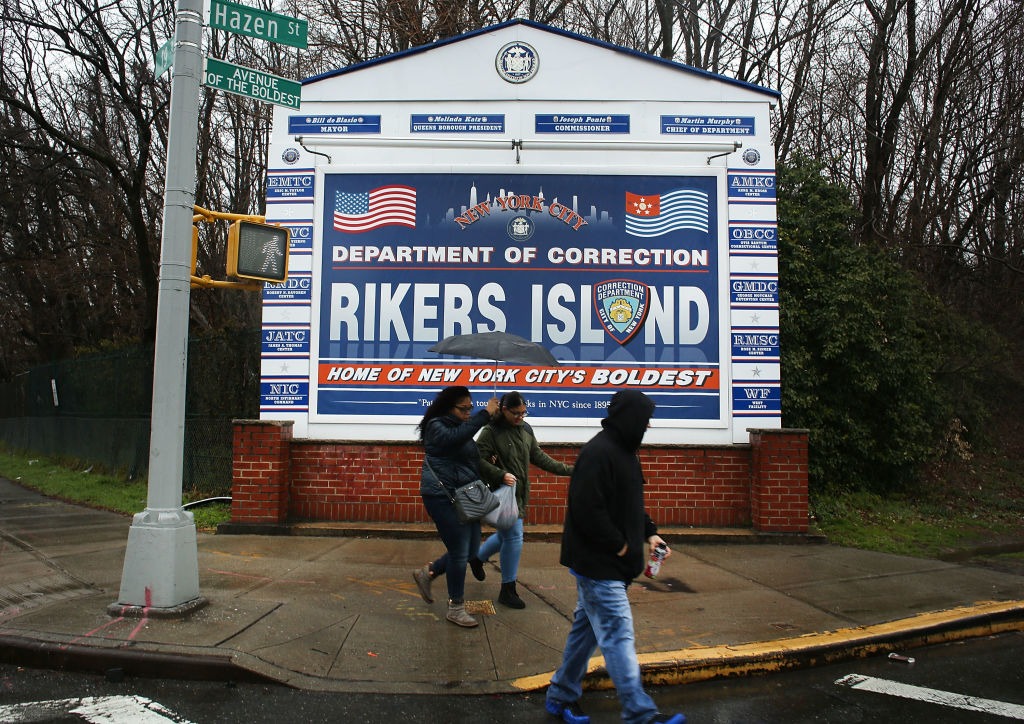Budget Cuts May Keep Rikers Open Past 2027 Deadline
Reductions in budgets related to the novel coronavirus have slowed New York City’s plan to close Rikers by building new jails, and it’s becoming increasingly possible that the city will not meet its January 2027 deadline.

Last fall, the New York City Council voted to build four new jails for $8.7 billion as part of a plan to close the Rikers Island jail complex by January 2027. The plan calls for four “community” jails in every borough, excluding Staten Island. But after COVID-19 devastated the city, Mayor de Blasio proposed broad budget cuts, including a cut of nearly $500 million for the early stages of jail construction.
If the mayor’s proposed capital budget cuts are finalized, jail construction would not begin until at least 2022; by then, neither de Blasio nor most sitting council members will be in office to approve funds for construction. These delays could keep Rikers open through 2030 and beyond.
“Even in good fiscal times, more than half of large capital projects are over budget and behind schedule,” a spokesperson for Councilmember Brad Lander told The Appeal. “It is likely that shifting this spending … [will] lead to further delays.” A May 6 report to the city council’s Committee on Finance confirms Lander’s interpretation, noting that “continued delays … decrease the chances of these jails being built.”
In an email to The Appeal, a spokesperson for the Mayor’s Office on Criminal Justice said the office is committed to closing Rikers as quickly as possible, and that it is still assessing how the coronavirus will affect the timeline for construction.
Last year, the city council voted to begin an experimental process to ban incarceration on Rikers Island by January 2027 through a city map amendment. That process has been delayed by COVID-19, and it’s possible that the council lacks authority to actually force a mayor to close Rikers. The Mayor’s Office on Criminal Justice maintains that this unprecedented city map amendment would be legally binding, but confirmed to The Appeal that the city’s Department of Buildings would be responsible for enforcement. Because the agency is controlled by the mayor’s office, it remains unclear how the city map amendment could be considered legally binding. Additionally, de Blasio’s commitment to closing Rikers appears questionable; just four months after his staffers publicly incorporated New York State’s bail reform law in jail population projections, he was in Albany lobbying for rollbacks.
Abolitionist organizers say they are not surprised by the jail construction delays. “We told you so,” said Mon Mohapatra, who helped create a set of abolitionist policy recommendations with Free Them All for Public Health that includes defunding the NYPD and closing Rikers with no new jails. “The whole justification for building these jails—closing Rikers, getting people out of this horrible penal colony—is now moot.”
Indeed, other cities such as Cincinnati and Miami have shown that reducing carceral capacity can pressure police departments to reduce arrests. Last year, No New Jails NYC circulated a detailed plan articulating how the city could close Rikers immediately without spending billions on new jails.
Mohapatra also emphasized the connection between recent calls to defund the NYPD and last year’s struggle against the jail construction plan. After weeks of protests against police violence, the city council proposed cutting $1 billion from the NYPD budget in the coming fiscal year. On June 23, activist groups, including VOCAL-NY, began occupying the area around City Hall and demanding a $1 billion cut to the NYPD as well as investments in housing, healthcare, education, and social services.
According to abolitionist organizers, however, that call to action doesn’t go far enough. “Defunding NYPD for $1 billion is going to be meaningless if billions are spent constructing new jails, and Rikers isn’t even closed,” Mohapatra said. VOCAL-NY initially supported the mayor’s jail construction plan alongside JustLeadershipUSA, but later retracted their support in a letter calling for more robust community investment. Jabari Brisport—who is likely to become the Democratic candidate for New York State Senate District 25 and was endorsed by the New York City Democratic Socialists of America—recently called for a $3 billion NYPD budget cut, a 50 percent headcount reduction, cuts to the capital budget for jail construction, and robust community investments. Brisport’s demand came just 10 days after abolitionist organizer Mariame Kaba suggested cutting police budgets in half in a New York Times op-ed.
Free Them All for Public Health has proposed cutting the NYPD budget and officer headcount in half—and immediately closing Rikers with no new jails. The group suggested funding the summer youth employment program, affordable housing, violence interrupters, community land trusts, public banking, universal childcare, and more. “When we have this opportunity to make bold asks around defunding,” Mohapatra said, “why are the possibilities limited to just NYPD?”
